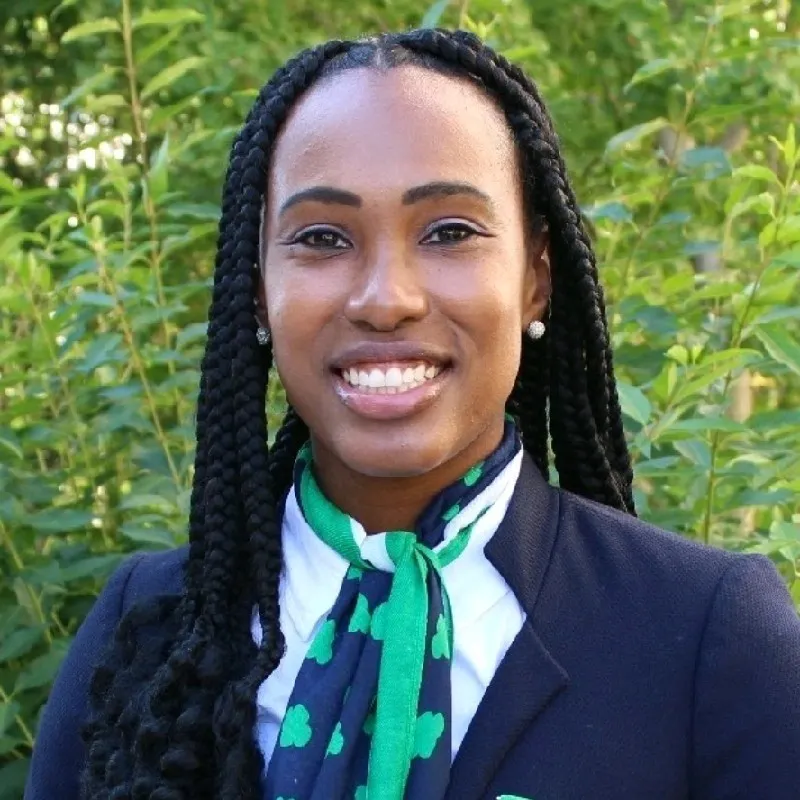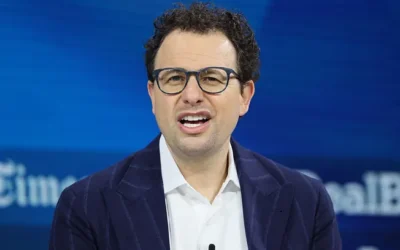Less than three and a half years into her inaugural CFO role, Jessica McClain, CFO of Girl Scouts Nation’s Capital, is a highly decorated accountant and finance leader. Her most recent achievement, being named a CFO Rising Star by the CFO Leadership Council at the end of last year, adds to an extensive array of accomplishments, including being a 2024 George Wallace National Achievement in Non-Profit Award winner by NABA, a 2023 Association Forum Forty Under 40 honoree and a 2024 and 2023 CPA Practice Advisor Most Powerful Women in Accounting.
Girl Scouts Nation’s Capital is the largest Girl Scouts organization in the U.S. and is structured as a 501(c)(3) nonprofit. They took in nearly $20 million of revenue in 2023. According to their most recent audit, the infamous cookies accounted for 65% of operating revenue and totaled $13 million in net sales that same year.
Looking ahead into 2025, McClain says she is focused on several priorities, including driving her organization’s finance function to peak efficiency, forecasting around the popularity of dual income no kids (DINK) households, taking a direct role in changing the narrative around the labor shortage in accounting and more.
Jessica McClain

CFO, Girl Scouts Nation’s Capital
Previous notable employers:
- Brand USA
- Williams, Adley & Company
- Grant Thornton
- IBM
- KPMG
This interview has been edited for brevity and clarity.
ADAM ZAKI: You’re approaching the end of the average CFO tenure and seem to be a prime candidate for your next CFO role. What is keeping you around, and do you have a succession plan?
JESSICA MCCLAIN: I tell people I have come home. We currently have a campaign called “Once a Girl Scout, always a Girl Scout,” and I was a Girl Scout in the council I work in now. To me, my mission has come full circle since taking this role. I have a young daughter, and knowing the work our council, paid staff, volunteers and donors do to move the mission forward is all about building the next generation of leaders.
As for my position, we have an amazing controller who I’ve been giving opportunities to learn because, at some point, you’re right — I’ve been doing this job for almost three and a half years now. I believe a succession plan and identifying your potential replacement and high-potential employees on the finance team is imperative for any CFO, regardless of whether they plan to leave their role.
There are trends like the DINK movement and stats showing the number of people having children is dropping at a concerning rate. How does this work into your forecasting conversations and planning for the future?
MCCLAIN: We have talked about this, and we call it a hard trend. We know the demographics of the country are changing, fewer people are having kids and this will impact our business long term. We look at it from a membership perspective and are adjusting our forecasts accordingly because we examine these things through a five- or ten-year lens.
This topic also comes up in my conversations with peers about the accounting pipeline of the future because it’s the same type of conversation.
How do we address the problem of talent shortages in the accounting pipeline? Are things like changing the 150-hour rule or fixing the image of public accounting remedies to the issue?
MCCLAIN: Two important ideas come to mind. One, we should stop writing headlines and social media posts saying no one wants to be an accountant. In all the organizations and state societies I am a part of and attend events at, I meet lots of young people who want to be accountants. I meet and mentor young accountants regularly. They are out there. We need to change this narrative.
Are there fewer people interested than in the past? Absolutely. But I don’t think there’s just one way to solve this issue. If you tell accounting firms to pay people more, that solves one part of it. If you remove the 150-hour requirement, that solves another part of it. CFOs need to pull all possible levers in their network, whether it’s mentoring, volunteering, speaking at events or getting involved in their company’s culture. We have to help drive the narrative that being successful in finance doesn’t mean working 80 hours a week, 52 weeks a year.
If we as CFOs take the initiative to help set this tone in our finance teams, it can make its way into the broader narrative of corporate finance. But it starts with us as CFOs to help change this narrative.
You have a variety of experience working in corporate finance. Can you share some takeaways from both a technical and leadership perspective you’ve gathered that have allowed you to become a highly decorated CFO?
MCCLAIN: From a technical standpoint, my training at KPMG and Grant Thornton was extensive and so valuable to me. The national training they offer and the opportunity to work with clients stuck with me because it gave me a chance to approach my work with an entrepreneurial mindset as I was trying to build my book of business.
The biggest thing I’ve had to work on is the leadership piece. I’ve gone through managing and meeting deadlines and managing people, but at the CFO level, you are truly leading. Your people need to understand your strategy and follow it, and you have to make them want to come along with you. This is something I’ve been working on, and I hope to get better as I grow and develop in this role.
How would you assess your finance function’s current tech stack?
MCCLAIN: We are currently implementing a new FP&A tool right now. Within finance, I must say my predecessor did an amazing job implementing technology across our function, so much of what we’re doing is automated and uses technology at multiple levels.
Right now, our focus is on using technology to improve our long-term forecasting process, so that’s an effort where we are already starting to see wins. From a reporting standpoint, our technology has been great since I’ve been here. We take pride in using technology across the organization and have digitized many of our functions over the years. But we’re still improving across the company, so it’s a continuous journey.
I’m sure you get asked to speak at many events. What’s your approach to saying yes to a public appearance, and what excites you about a speaking opportunity?
MCCLAIN: I’ve always had no problem saying no to an appearance or event I didn’t want to attend. I like to talk about things I already know, not something I’d have to spend time researching just to speak on it. What excites me most is an engaging topic with a reasonable time commitment.
Even in television interviews I’ve done for Girl Scout cookies or events I’ve attended with other organizations I’ve been a part of, I’ve made it a priority to be open about what makes me want to participate. I always encourage people to reach out, but I won’t hesitate to say no if there’s a legitimate reason to do so.





